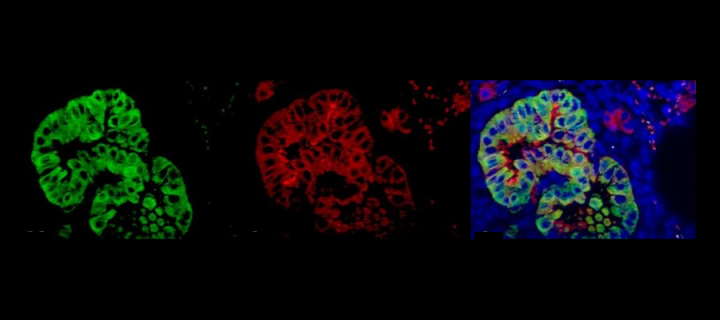Lung cancer gene study may enable diagnostic tests
A genetic study of lung cancer in sheep could lead to earlier diagnosis of the disease in sheep and people.

Improved understanding of how lung cancer develops could lead to earlier diagnosis of the disease in sheep and humans.
Cells related to the immune system and the formation of cancer undergo genetic changes during the growth of the disease in sheep, a study found.
Genetic changes
The study, led by researchers from the Moredun Research Institute and the Roslin Institute, looked at how the genetics of lung cells change when infected with the jaagsiekte sheep retrovirus (JSRV).
This retrovirus causes ovine pulmonary adenocarcinoma (OPA) — an infectious and deadly lung disease of sheep.
In affected flocks, OPA can result in the death of 1-20 per cent of sheep in a year, posing a significant economic problem for farmers.
However, the reason why sheep respond so badly to the virus is currently poorly understood.
Lung cancer in humans
Investigating OPA also represents a valuable tool for studying some forms of human lung cancer, owing to similarities in how the cancer cells are activated in sheep and humans.
There is a large degree of overlap between faulty genes in sheep and in human cancer, the team found in this study, published in the Journal of Virology.
Lung cancer is difficult to diagnose in its early stages in both sheep and humans, and the discovery of common markers could lead to improved early detection of cancer in both sheep and humans.
This study provides important insights into lung cancer development. We looked at the genetic make-up of lung cells when infected by a virus that causes cancer and identified relevant genes. We observed genetic similarities between sheep and human lung cancer.
Understanding the genes that are switched on or off during JSRV infection provides important clues as to how the virus initiates cancer and may lead to novel routes for combating the disease.
** The Roslin Institute receives strategic investment funding from the Biotechnology and Biological Sciences Research Council and it is part of the University of Edinburgh’s Royal (Dick) School of Veterinary Studies. **


